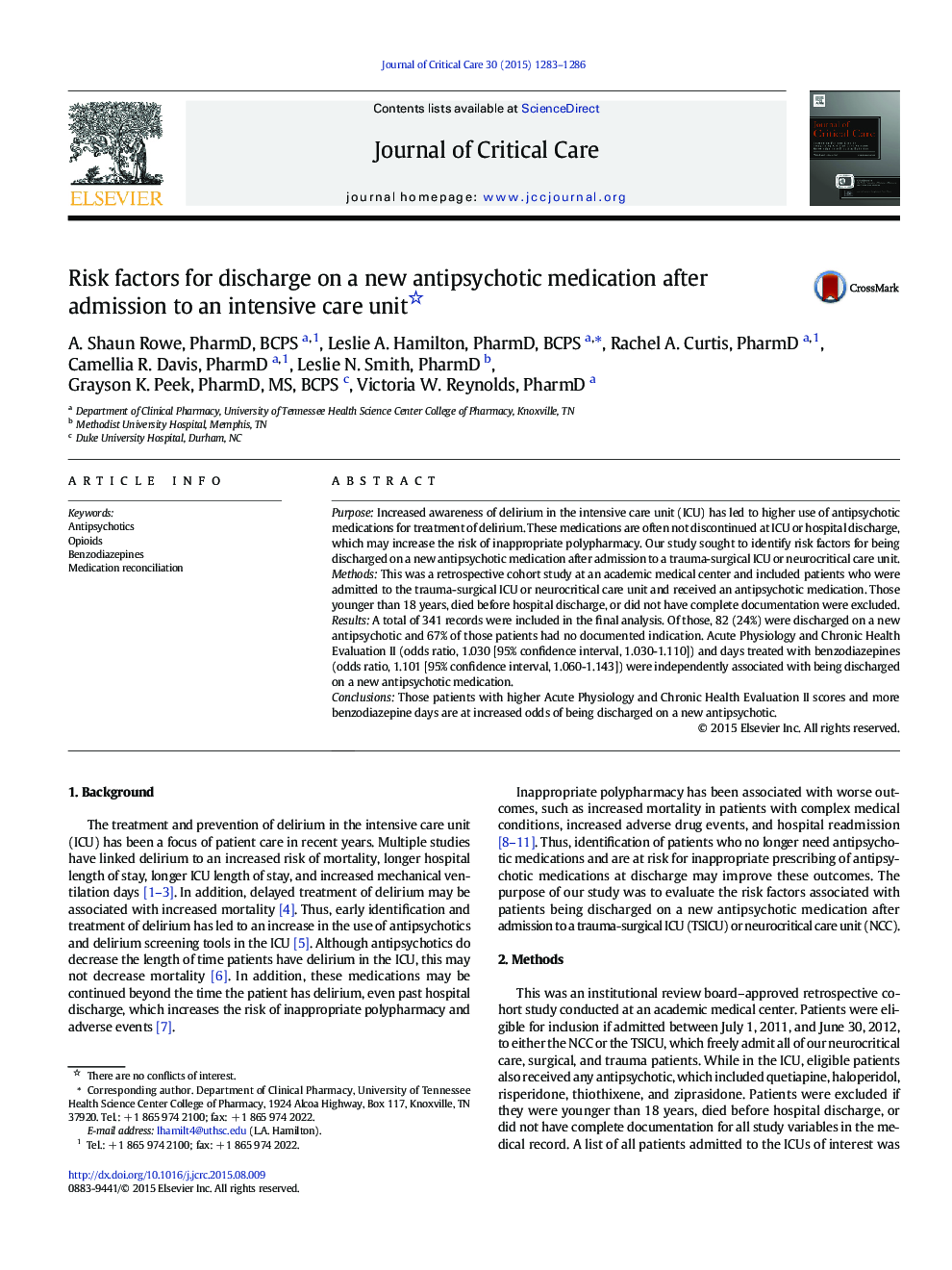| Article ID | Journal | Published Year | Pages | File Type |
|---|---|---|---|---|
| 5885220 | Journal of Critical Care | 2015 | 4 Pages |
PurposeIncreased awareness of delirium in the intensive care unit (ICU) has led to higher use of antipsychotic medications for treatment of delirium. These medications are often not discontinued at ICU or hospital discharge, which may increase the risk of inappropriate polypharmacy. Our study sought to identify risk factors for being discharged on a new antipsychotic medication after admission to a trauma-surgical ICU or neurocritical care unit.MethodsThis was a retrospective cohort study at an academic medical center and included patients who were admitted to the trauma-surgical ICU or neurocritical care unit and received an antipsychotic medication. Those younger than 18 years, died before hospital discharge, or did not have complete documentation were excluded.ResultsA total of 341 records were included in the final analysis. Of those, 82 (24%) were discharged on a new antipsychotic and 67% of those patients had no documented indication. Acute Physiology and Chronic Health Evaluation II (odds ratio, 1.030 [95% confidence interval, 1.030-1.110]) and days treated with benzodiazepines (odds ratio, 1.101 [95% confidence interval, 1.060-1.143]) were independently associated with being discharged on a new antipsychotic medication.ConclusionsThose patients with higher Acute Physiology and Chronic Health Evaluation II scores and more benzodiazepine days are at increased odds of being discharged on a new antipsychotic.
